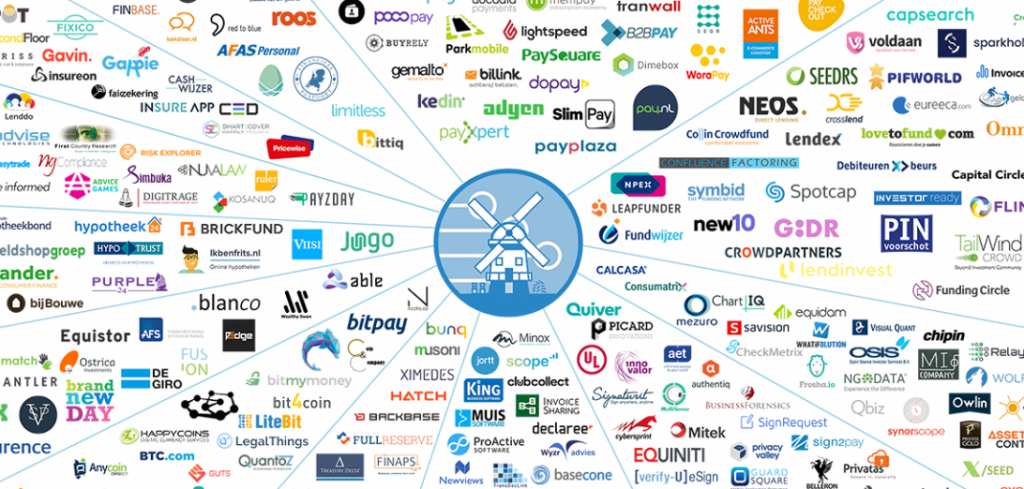Today Testbirds take is on a journey explaining everything about Dutch Fintech landscape. Make sure you have a look and get your ticket ready for Amsterdam Tech Job Fair – because this is where you can meet their team!
At Testbirds, we help companies and organisations to optimise their digital products and services. We do this for all kinds of clients throughout all sectors and verticals. Within finances and insurances, the need for good working software is evident. From Amsterdam, Julius travels through the Dutch fintech landscape and for our blog he wrote an article about it.
Working for a tech company like Testbirds, I get the opportunity to meet a lot of different innovative companies, of which many operate in different segments of the financial services area. Banking, payments and insurance to name a few. Many of these companies share similar challenges, but all have their own focus on what they want or need to work on right now. What I find very impressive is how (and how much) knowledge and experience is being shared, for example through Holland Fintech, and the interesting events they organise.
Dutch fintech landscape
The fintech landscape in the Netherlands is very diverse. More and more companies are entering the space to join the action and provide new and innovative solutions. Looking at the Dutch landscape, it ranges from disruptive companies such as CapSearch based in Amsterdam, to established multinationals like Ingenico with over 7500 employees and operating worldwide.
On the other hand you see quite some fintech companies that are backed by large banks, insurance companies and other financial companies. A good example is New10 from ABN AMRO. In a recent meetup I attended, they showed us what they have achieved in less than a year – from a disruptive idea to a working company. This is something that many companies can learn from.
And of course, the biggest pride in recent history within the Dutch fintech landscape definitely is Adyen. Many start-ups dream of reaching that unicorn status, and only very, very few actually do. The recent IPO of Adyen is a great example of how a digital product can enrich and simplify existing processes. In short, one of the biggest player on the Dutch Fintech Infographic, created by Holland Fintech.

Big variety
Holland Fintech organises, among other things, monthly meetings where different companies are invited to pitch and share their experiences and learnings. This is a great stage for starting companies to pitch their idea to experienced financial experts and gather interesting feedback, or perhaps get introduced to essential people to move to the next stage with their company. This helps both young companies to learn from and perhaps work with established players who have more experienced people, in addition to their deep pockets of course. At the same time, we see the big companies wanting to become more innovative and agile.
Client facing?
There’s a big difference between banks, which you use daily for payments, and asset managers that provide pension solutions, or behind-the-scenes specialists, such as the earlier mentioned players Adyen and Ingenico. Most consumers are familiar with the high street banks and probably can sum up a couple insurance companies. But the majority of the SME’s are not known by the larger public, mostly because they only work business-to-business. This can be a payment provider which makes it possible for you to easily pay for the book you bought online, or CapSearch that improves access to capital by providing a financing platform for SME advisors and financial institutions.

Testing finance and insurance applications
At Testbirds, we test all imaginable kinds of digital products on functionality and usability issues. We have worked on quite some innovative projects within the realm of finance and insurance. Take a project we’ve done for Generali for instance, in which we tested a Pay-as-You-Drive app. The app measures the driving behavior of the insured by the use of GPS. For the evaluation of the data three things specifically are taken into consideration: general decision for reasonable speeds and the deceleration and acceleration near traffic nodes, turns and in straight lines. Based on this information a score is compiled that is taken into account for the calculation of premiums (however, not in direct claims settlements). Testbirds tested the app with real end-users, who used their own devices. It is these kinds of innovative projects that make software testing truly exciting, especially for finance and insurance companies. And it’s one of the reasons why I like to travel through the Dutch fintech landscape as well. I’m looking forward to seeing what the future will bring within this fascinating area.
Interested to learn more?
Curious to learn how Testbirds helps to improve the quality and usability of digital products? Feel free to get in touch via j.heyning@testbirds.com.
Original article here.






